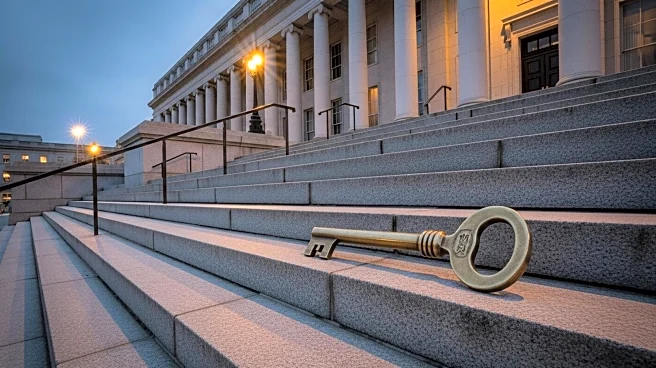What is the story about?
What's Happening?
The United States government has officially shut down following the Senate's failure to pass a stopgap funding bill. The bill, which was previously passed by the House, aimed to maintain current funding levels until November 21. However, it did not secure the necessary 60 votes in the Senate, with a final tally of 55-45. The shutdown is a result of congressional Democrats refusing to support the Republican funding package without concessions related to healthcare. This marks the first government shutdown since the 35-day closure during President Trump's first term, which spanned from late 2018 into early 2019.
Why It's Important?
The shutdown has significant implications for federal employees, government operations, and the broader U.S. economy. Federal workers face potential furloughs and delayed paychecks, while government services may be disrupted. The shutdown also highlights ongoing partisan divisions in Congress, particularly over budgetary and healthcare issues. The inability to reach a consensus on funding reflects deeper political challenges that could affect future legislative negotiations and public trust in government institutions.
What's Next?
With the Senate adjourned until the following morning and the House until October 7, immediate resolution seems unlikely. The shutdown could prompt further legal and political battles, as evidenced by lawsuits from labor unions against the Trump administration over potential mass layoffs of federal workers. Political leaders may face increased pressure to negotiate a compromise to restore government operations and address the contentious issues at the heart of the funding impasse.
Beyond the Headlines
The shutdown may exacerbate public dissatisfaction with political leadership and governance, potentially influencing voter sentiment in upcoming elections. It also raises ethical concerns about the use of federal employees as leverage in political negotiations, as highlighted by the lawsuits filed by labor unions. The situation underscores the need for more effective bipartisan collaboration to prevent future shutdowns and ensure stable government operations.

















